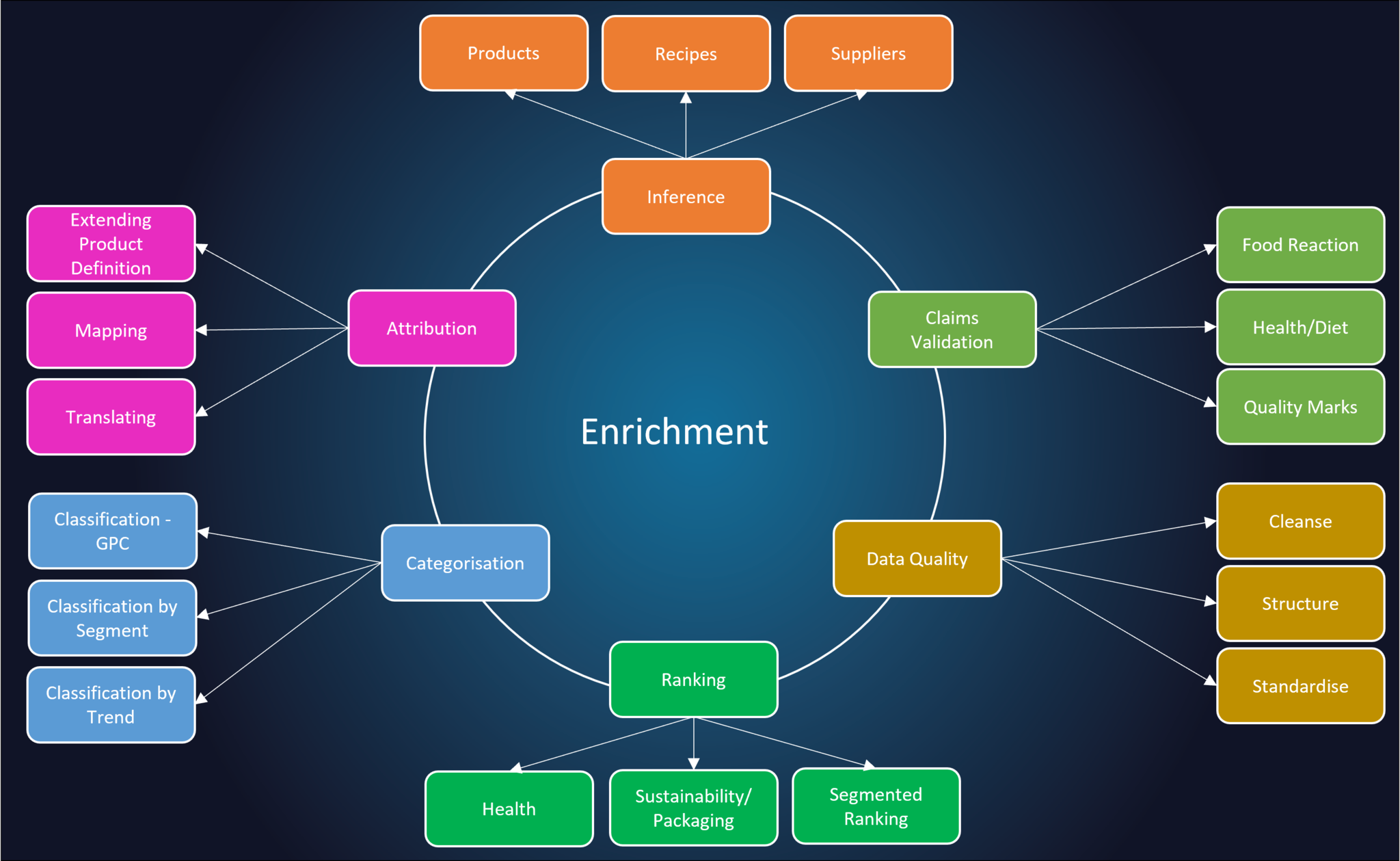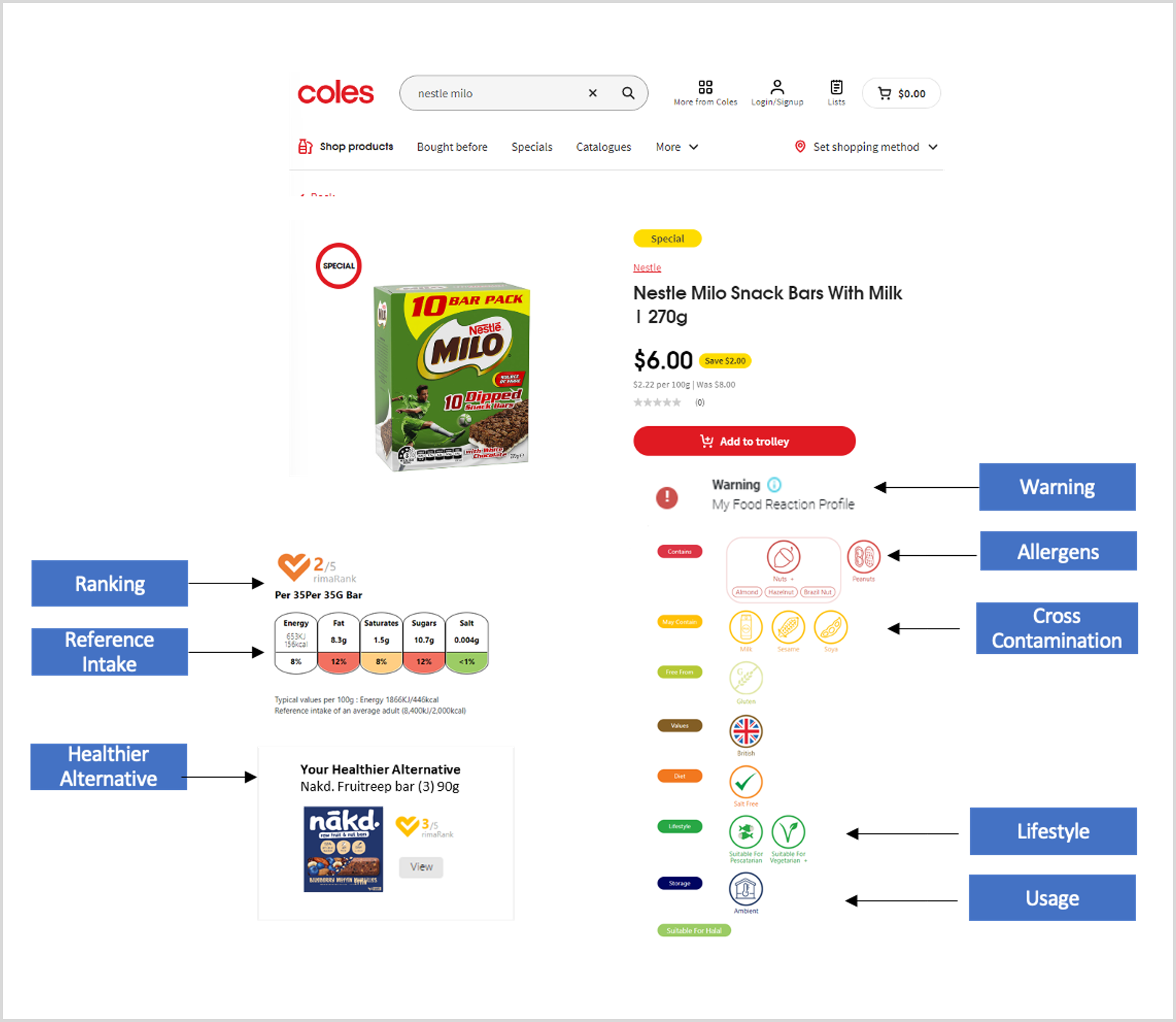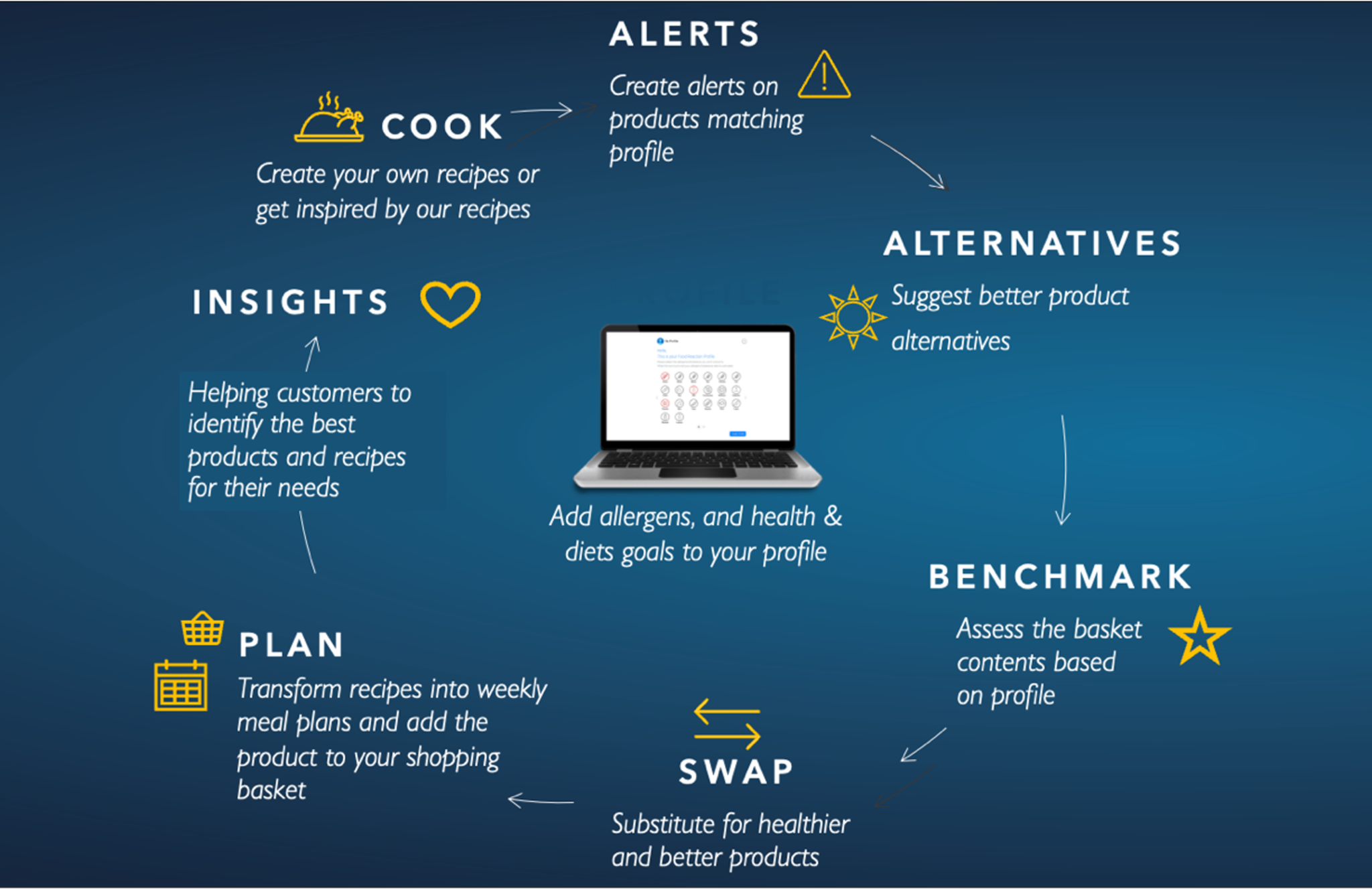In an era marked by rapid technological advancements and shifting consumer preferences, supply chains across the food manufacturing and retail sectors are undergoing a transformation. As these industries evolve towards a more customer-centric approach, product enrichment emerges as a revolutionary tool in reshaping the retail landscape. Here’s why.
The Changing Face of Supply Chain
The evolution of the supply chain over the years is not just an outcome of technological innovations. External pressures, such as increased customer expectations, global competition, and an overarching demand for sustainability, play an equally compelling role. As a result, businesses must face financial implications, protect brand equity, enhance operational efficiency, strategically position themselves and manage risks.
Future competitive edge hinges on supply chains that are resilient, sustainable, digital, transparent, and, above all, customer-centric. Such chains can respond with agility, provide hyper-personalised products and services, and offer a holistic customer experience proposition that goes beyond the product. Whether it’s ensuring food safety, leveraging real-time analytics, or reducing food waste, supply chains are now intertwined with customer values and preferences more than ever.
Product Enrichment: A Paradigm Shift
Traditional product data has been limited, siloed, underused, and primarily focused on upstream processes. However, in the heart of this transformation lies
It’s not just about adding value to existing data but also refining values and improving data quality. This paves the way for “Identity Retailing,” where the shopping experience is dynamic, personalised, and reflects a customer’s unique needs, preferences, and values.
The Dawn of Identity Retailing
Identity Retailing is not just a buzzword; it’s the next phase in retail evolution. It demands a comprehensive understanding of customers’ preferences and shopping patterns. The enriched product data lies at the centre of this experience, enabling a journey that recognises a customer’s values, diets, and lifestyle. From personalised recipes to proactive product warnings, the retailing dialogue is now more interactive, engaging, and aligned with the customer’s identity.
Objectives and Outcomes
By maximising the value of enrichment services, retailers can not only differentiate themselves but also drive loyalty, increase basket size and synchronise shopping
The Road Ahead
Product enrichment is not an isolated strategy. It intertwines with every facet of a business, demanding a rethinking of traditional demand chain challenges. By centering strategies around the customer and adding value at every stage, businesses can transition from a linear demand chain to a holistic, resilient, and profitable value chain. In so doing, they can recognise true demand signals based on what customers really want, to drive the entire supply chain.
In this ever-evolving market landscape, businesses that harness the transformative power of product enrichment will undoubtedly emerge as frontrunners, reshaping the future of retail, food manufacturing, and supply chain management.
Product data enrichment is not merely about improving product attributes; it’s about rethinking the entire retail value chain for the customer, enabling transition to a more holistic, resilient, and profitable value chain. Furthermore, it is a transformative lever that enhances customer experiences, leverages technology, and streamlines operations. As retailers harness its power, they position themselves for greater success. Embracing product data enrichment is not just a
With the potential for product data enrichment to reshape the retail industry, it’s crucial for businesses to recognise its importance and make it a central part of their strategy. As customer expectations continue to rise, those who prioritise enrichment will be the ones to lead the way into a bright retail future.
By embracing this paradigm shift, businesses can move beyond traditional demand chains, transforming into dynamic, customer-centred value chains. This shift will not only enhance customer experience but also drive profitability and sustainability, ultimately securing a lasting place in the competitive world of retail.
